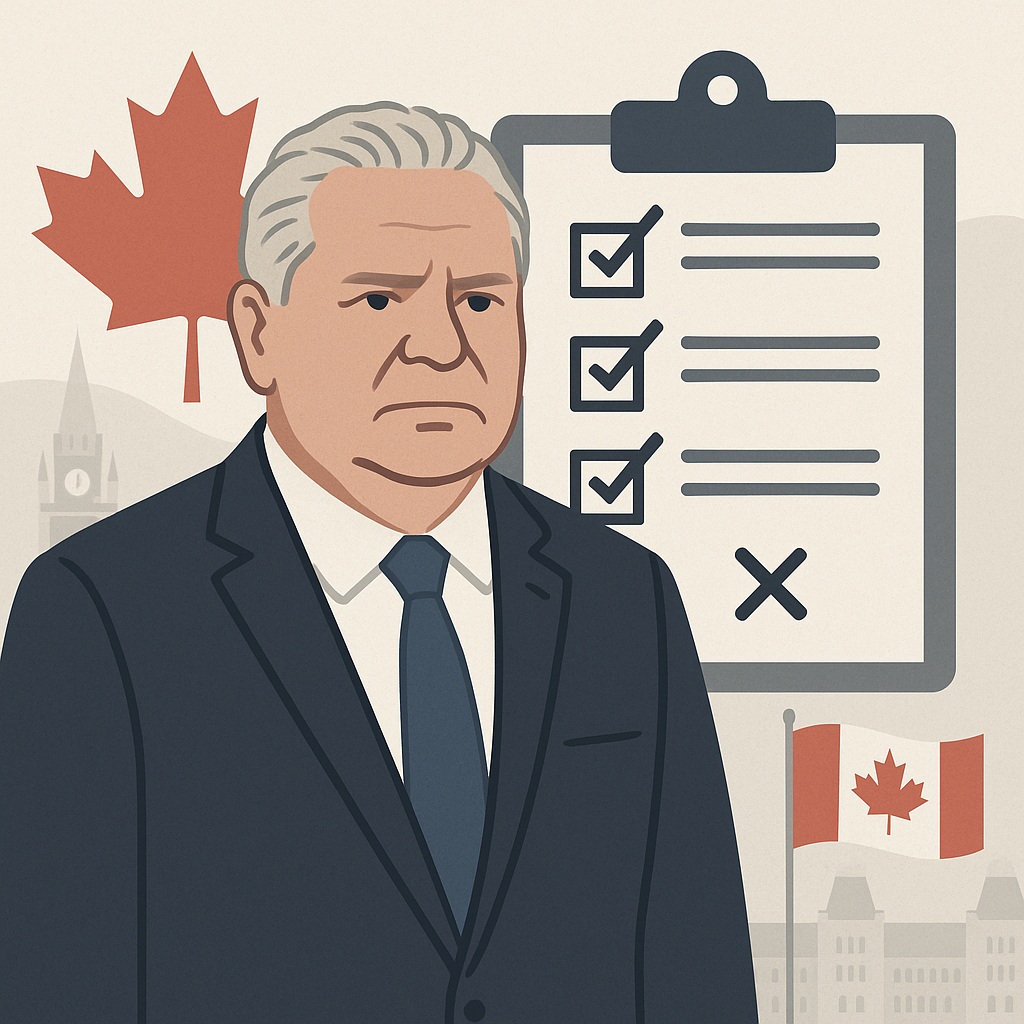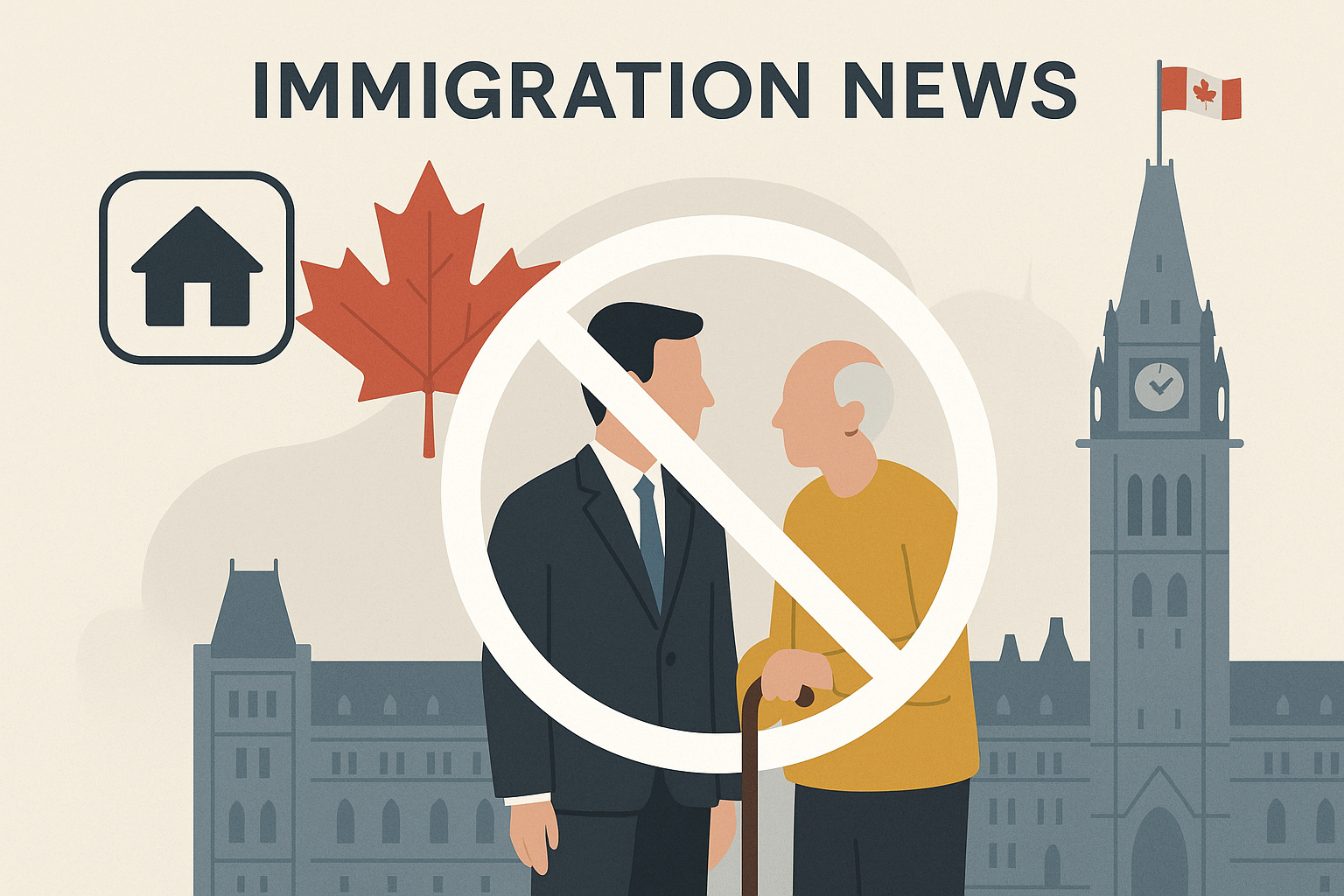
Ontario Premier Doug Ford reversed his plan to issue provincial work permits for asylum seekers, backing away from a challenge to federal jurisdiction while pressing Ottawa to clear processing backlogs. IRCC says asylum-seeker work permits are typically issued about 45 days after a complete application, but delays remain a concern for claimants and employers.
Soheil Hosseini
July 29, 2025
Jurisdiction
Ontario
Week
Week 31
Impact
Moderate
Programs Affected
Doug Ford Reverses Plan to Issue Provincial Work Permits for Asylum Seekers
Summary: Ontario Premier Doug Ford has reversed his pledge to issue provincial work permits to asylum seekers, reaffirming federal primacy over work authorization while pressing Ottawa to clear backlogs and accelerate processing. Date of Update: 2025-07-29 Source: The Canadian Press (News Article) Programs Affected: Work Permits; Refugees TORONTO — Ontario Premier Doug Ford has walked back last week’s plan to have the province issue work permits to asylum seekers, a move that would have challenged Ottawa’s lead role in immigration administration. He did not explain the reversal, saying, “I don’t want to take the responsibility off the federal government, but in saying that, if you have a pulse and you’re healthy, you need to be working.” Key points:
- REVERSAL: Ford retreats from issuing provincial work permits announced at the premiers’ meeting in Huntsville, Ontario.
- FEDERAL TIMELINES: IRCC says work permits for asylum claimants are usually processed in about 45 days after a complete application, countering claims of two-year waits.
- BACKLOG PRESSURE: Ford cites 70,000 permits issued last year versus 90,000 claimants in Ontario; urges Ottawa to clear the gap.
- JURISDICTION: Immigration is shared; federal-provincial agreements structure program delivery under Section 95 of the Constitution.
- POLITICAL RESPONSE: Ontario NDP Leader Marit Stiles urges the Premier to focus on provincial responsibilities such as health care and infrastructure. At last week’s premiers’ gathering, Ford and others pressed for greater provincial control over immigration. He referenced Alberta Premier Danielle Smith and Section 95 of the Constitution as a basis for provincial action, declaring at the time, “We will be issuing our own work permits.” On Monday, he reversed course without providing reasons. Immigration, Refugees and Citizenship Canada responded that asylum-seeker work permits are typically issued within approximately 45 days once applicants submit a complete file, including a medical exam and updated address. IRCC spokesperson Jeffrey MacDonald emphasized ongoing collaboration with provinces, the shared nature of immigration jurisdiction, and legally binding federal-provincial agreements. He added that Ottawa is planning immigration levels for 2026–2028 with input from all provinces and territories. Despite changing tack, Ford maintained that federal processing remains too slow and called for clearing Ontario’s backlog. New Democrat Leader Marit Stiles criticized the Premier’s focus, urging attention to provincial priorities like health care, infrastructure, and post-secondary institutions. Independent analysis:
- Potential positives: The reversal avoids immediate legal uncertainty and potential intergovernmental conflict over who can lawfully issue work permits, preserving national consistency in asylum-related employment authorization. It may streamline coordination as Ottawa finalizes 2026–2028 immigration levels.
- Potential negatives: Asylum seekers remain dependent on federal processing capacity, which could prolong time to labour market entry if bottlenecks persist. Employers facing labour shortages may see continued delays in accessing authorized workers. The episode underscores ongoing tensions over provincial roles in immigration, potentially complicating policy coherence if similar proposals re-emerge.
Closing: Ford’s retreat restores the status quo on work authorization for asylum seekers, keeping Ottawa firmly in charge while pressure mounts to reduce processing times and clear backlogs. All eyes now turn to federal-provincial coordination and the upcoming multi-year immigration levels plan.
Tags: Ontario immigration, Doug Ford, asylum seekers, work permits, IRCC, Section 95, immigration backlog, federal-provincial relations, Canadian immigration policy, refugees, Ontario politics
Categories
Share This Post
Stay Updated with Immigration News
Get the latest updates on Express Entry draws, OINP invitations, policy changes, and more delivered to your inbox.
We respect your privacy. Unsubscribe at any time.
Related Articles

Parent and Grandparent Suspension
IRCC Ministerial Instructions effective Jan 1, 2026 suspend acceptance of new parent and grandparent PR and sponsorship applications until further notice. Up to 10,000 applications from the 2025 intake may be accepted into processing in 2026; details on the next intake will be announced later.

Study Permit: +90 Days
IRCC (Dec 22, 2025) now limits study permits for prerequisite programs to program length plus 90 days (down from program length plus one year), aligning with November 2024 regulatory changes. Students must plan transitions into main programs within 90 days or prepare for permit extensions; institutions may need to adjust admissions timing.

Foreign Workers Start Work
Canada’s temporary public policy (IRPA s.25.2), effective May 27, 2025, allows eligible temporary foreign workers in Canada to begin work for a new employer or occupation while a new TFWP or IMP work-permit application is pending. Workers must have valid temporary resident status, submit the work-permit application and an IRCC exemption request via the designated channel; approvals are discretionary and end when the application is decided or withdrawn.

Qatar Added to eTA
Canada has made Qatari nationals visa‑exempt and added Qatar to the eTA program; eligible travelers must obtain an eTA for air travel to Canada. This replaces the TRV for air arrivals and is intended to streamline short‑term travel and ties between the countries.